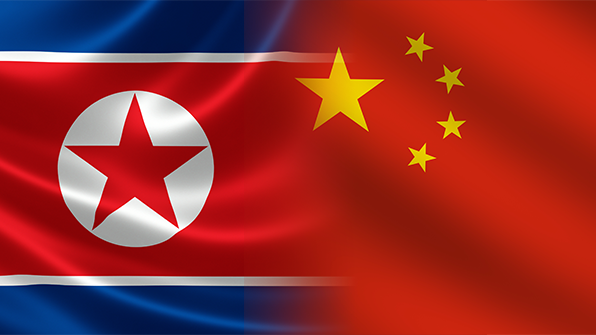
PYONGYANG, North Korea – North Korea and China are significantly expanding their cooperation in the education sector, with a full-scale push to dispatch Chinese faculty to Pyongyang University of Science and Technology (PUST) as a core part of this initiative, multiple sources in China familiar with North Korean affairs revealed on the 27th. This move is interpreted as part of North Korea's strategy to overcome international isolation and build a self-reliant economic foundation. China, for its part, appears to be aiming to strengthen its relationship with North Korea and expand its influence in Northeast Asia.
Chinese Faculty to Pyongyang Mid-June, Cooperation on Online System Building
According to a North Korean source in China for Daily NK, early this month, a contract was signed under the leadership of the North Korean Embassy in Beijing and the Chinese Embassy in Pyongyang to dispatch professors from various Chinese universities to PUST for one-year short-term assignments. The first group of faculty has already been selected and is expected to begin procedures for their departure to Pyongyang in mid-June. China reportedly plans to rotate professors from its major universities on a yearly basis.
Another local source familiar with North Korean affairs stated that this matter has been officially discussed since early May, coordinated between the North Korean Embassy in Beijing and the Chinese Embassy in Pyongyang. The two sides are not only focusing on faculty dispatch but also holding working-level discussions on modernizing PUST's educational system.
In particular, Chinese universities will jointly participate in establishing an online lecture system within PUST alongside the faculty dispatch. Starting in the latter half of 2025, new courses at PUST, including Basic Medicine, Smart Agriculture, and Applied Statistics, are expected to be conducted in an integrated online and offline format. This is interpreted as an effort to help modernize North Korea's education system while disseminating Chinese technology and educational methods to the country.
Guarantee of Chinese Faculty Safety and Academic Autonomy Specified
According to sources, the recent agreement between North Korea and China includes provisions for ensuring the personal safety of Chinese faculty and expanding their academic operational autonomy. This appears to be a measure to guarantee the minimum conditions necessary for foreign faculty to conduct stable educational activities in North Korea. Additionally, the two sides are reportedly coordinating all necessary support through diplomatic channels, including streamlining visa issuance, guaranteeing local living expenses, and facilitating the entry of educational equipment for the dispatched Chinese faculty. This suggests North Korea is taking an active stance in attracting external personnel and places significant importance on cooperation with China.
North Korea's Attempt to Build a 'Knowledge Corridor' Through North-China Cooperation
One source evaluated that through this enhanced education and technology cooperation between North Korea and China, North Korea is demonstrating a move to overcome political and economic isolation and build a national strategic self-reliance foundation amidst sanctions. He added that this faculty dispatch program is a symbolic signal of such efforts.
Another source relayed that within Chinese educational circles, there is talk that North Korea, in the face of blockade by the United States and the West, is joining hands with China to build a 'knowledge corridor' for nurturing talent. This indicates North Korea's strong will to advance its own talent cultivation system within its closed regime and actively utilize China's educational resources and technology for this purpose. In fact, North Korea is reportedly planning to designate PUST as a 'leading示范university for nurturing global technical talent' through this cooperation.
Some in the Chinese educational community also analyze that this cooperation is taking place in a trend where North Korea's 'Chinese-style internationalization' has officially begun since PUST was designated as North Korea's first HSK (Chinese Proficiency Test) testing center in 2019. This suggests that North Korea views China as an important partner in its attempts to increase exchanges with the international community.
What is Pyongyang University of Science and Technology?
Pyongyang University of Science and Technology (PUST) is North Korea's only private university focused on foreign faculty, established in Rakrang District, Pyongyang in 2009, and officially began student recruitment in 2010. It boasts approximately 700,000 square meters (about 210,000 pyeong) of land with over 60 classrooms and offers practical-oriented subjects such as agriculture, medicine, and finance. Currently, it has about 700 students and 300 faculty members, of whom around 30 are foreign nationals.
While Western Christian figures primarily led PUST's establishment, cooperation with China has been strengthening recently. While this cooperation can contribute to modernizing North Korea's education system and cultivating scientific and technological talent, some analyses suggest it could also serve as an opportunity for China's influence to penetrate deeper into North Korea.
This dispatch of Chinese faculty is seen as a significant signal, opening a new chapter in North Korea-China relations beyond educational cooperation. It will be a crucial point where North Korea's survival strategy and China's Northeast Asian strategy intersect amidst the sanctions regime, serving as an important indicator for the future direction of North Korea-China relations. The international community is paying close attention to whether this expanded educational cooperation between North Korea and China will lead to North Korea's opening or become another channel that deepens its isolation.
[Copyright (c) Global Economic Times. All Rights Reserved.]






























